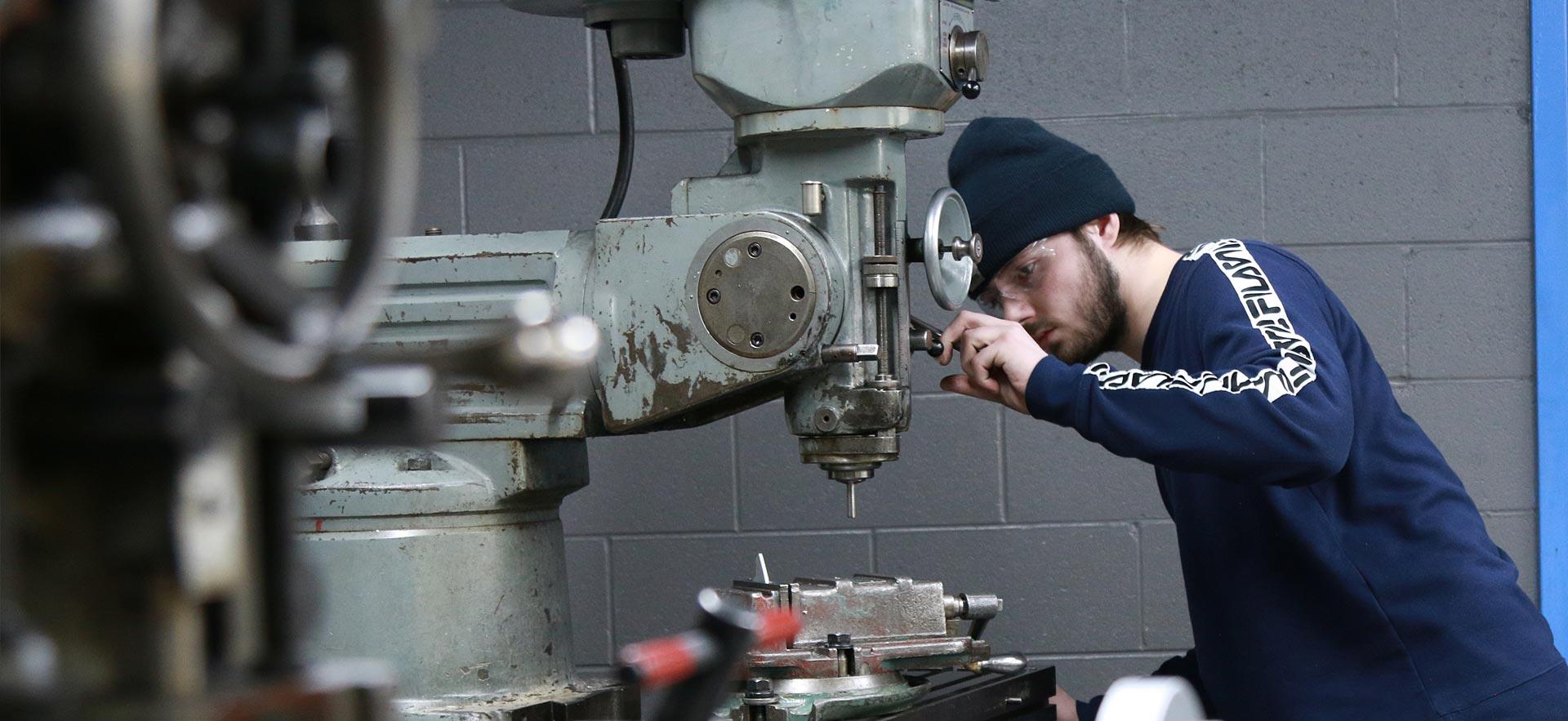Overview
Machines make our lives easier, but only if they’re working. And that’s where you come in. Thanks!The Mechanical Techniques - Industrial Maintenance (Millwright) program is designed for individuals interested in a rewarding career in mechanical trades. This program allows you to develop the skills, knowledge and theory of machine fabrication and installation, repair and maintenance of industrial machinery. Graduates of this program can pursue an apprenticeship or continue further education in the trade.
Gain the hands-on experience needed to succeed in your career alongside industry-trained instructors. And do it all on modern equipment you’ll find in the workplace (our labs are super cool!).
- Drafting and blueprint reading
- Precision measuring
- Installing and troubleshooting systems
- Welding
- Rigging and hoisting
These are just some of the essential skills you’ll graduate with.
Industrial mechanics (millwrights) are in-demand in manufacturing plants, with utilities, and other industrial organizations maintaining, repairing, and installing equipment.
If you love to keep things running smoothly, you’ll find it at Sault College.
Courses
Requirements & Program Information
Career Path
As a graduate of this certificate program, you can work in entry-level positions in a broad range of employment settings in the manufacturing industry, in both large and small organizations. Industrial mechanics/millwrights work in manufacturing plants, utilities, and other industrial organizations maintaining, repairing and installing equipment.
You may also pursue further education or apprenticeship training. If you wish to pursue an apprenticeship, you should contact the local office of the Ministry of Colleges & Universities, Apprenticeship Branch at 705.945.6815.
Industrial Mechanic/Millwrights perform some or all of the following duties:
- Read blueprints, diagrams and schematic drawings.
- Install, align, dismantle and move stationary industrial machinery and mechanical equipment.
- Operate hoisting and lifting devices.
- Inspect and examine machinery and equipment to detect and investigate irregularities and malfunctions.
- Install, troubleshoot and maintain power transmission, vacuum, hydraulic and pneumatic systems.
- Adjust machinery and repair or replace defective parts.
- Operate machine tools such as lathes andmilling machinesto fabricate parts required during overhaul, maintenance or set-up of machinery.
- Clean, lubricate and perform other routine maintenance work on machinery.
- Assemble machinery and equipment prior to installation using hand and power tools and welding equipment.
Contact
Program Contact: Carolyn Hepburn, (705) 759-2554 ext 2499, carolyn.hepburn@saultcollege.ca
